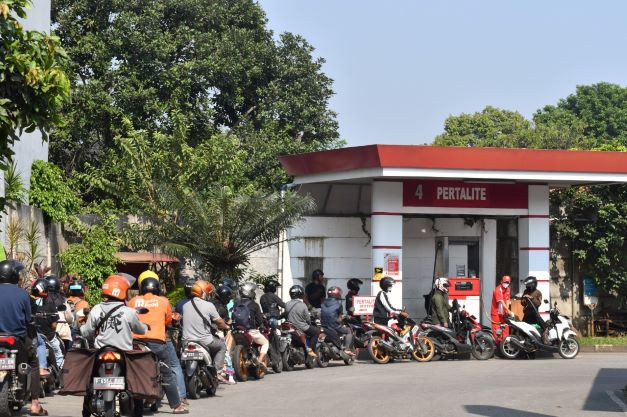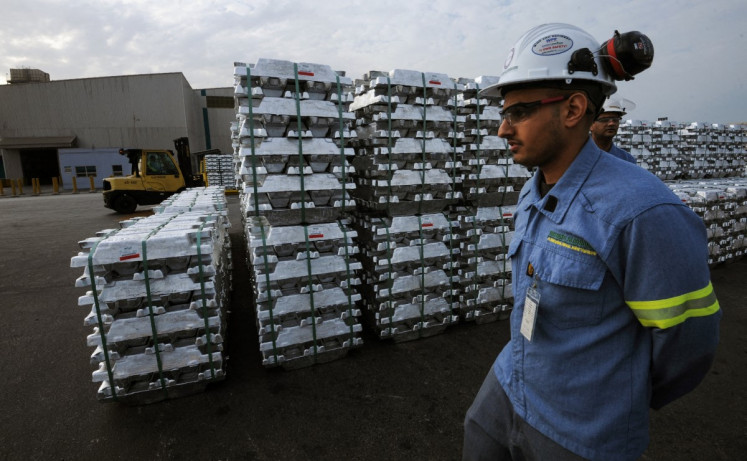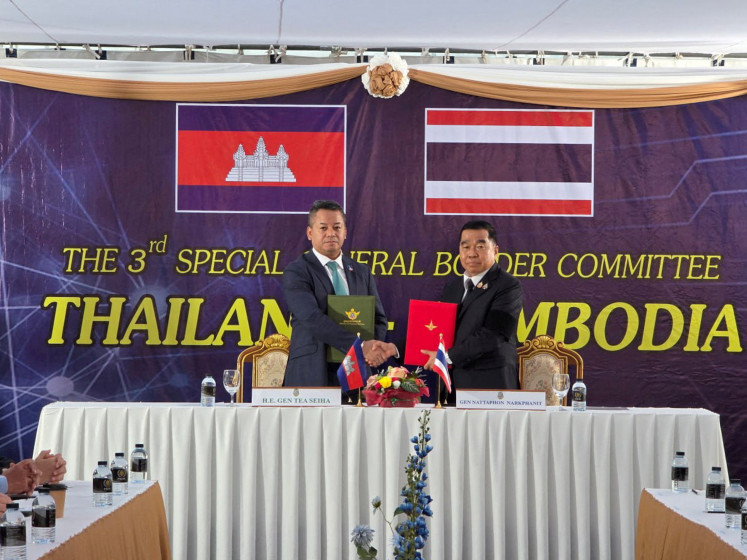Popular Reads
Top Results
Can't find what you're looking for?
View all search resultsPopular Reads
Top Results
Can't find what you're looking for?
View all search resultsA bad time for a good idea
Jokowi struck a cautious note on Tuesday when he said that an increase in the price of Pertalite should not hit people’s purchasing power and should not lead to a spike in inflation.
Change text size
Gift Premium Articles
to Anyone
S
ubsidies generally lead to a misallocation of resources, so the government deserves praise for mulling the merits of its policy to keep fuel cheap at all costs.
High global oil prices have seen the state rack up an enormous bill. After several budget revisions, the allocation for energy subsidies and compensation for this year has ballooned to Rp 502 trillion (US$33.5 billion).
It is doubtful that amount will suffice until the end of the year, as appeals to motorists to switch to nonsubsidized gasoline have unsurprisingly fallen on deaf ears, and efforts to force them have been half-hearted at best. Finance Minister Sri Mulyani Indrawati said on Tuesday the bill could hit Rp 700 trillion.
The pressure is on, therefore, to do something about what appears to be – literally – an unsustainable practice.
Coordinating Maritime Affairs and Investment Minister Luhut Pandjaitan, as so often is the case, got the ball rolling, announcing a few days ago that the government was preparing to hike the price of Pertalite, the RON-90 gasoline currently sold by Pertamina at a subsidized price of Rp 7,650 per liter.
Luhut did note, wisely, that the final word on the matter rested with President Joko “Jokowi” Widodo. Now in the second half of his second term in office, one might conclude, the President has less to lose by touching the political hot potato.
A decision was to be announced this week, but Jokowi struck a cautious note on Tuesday when he said that an increase in the price of Pertalite should not hit people’s purchasing power and should not lead to a spike in inflation.
To anyone opposed to subsidies in principle, that may sound like a cop-out, but given that Jokowi is at the apex of his political career and cannot run for office again, it is fair to assume his caution is down to more than populism.
Indeed, the risk of hiking fuel prices at a time of excessive global inflationary pressure must be taken seriously. Higher gasoline prices would feed through to transportation costs and therefore increase prices of food and consumer goods across the board.
Also, it is hard to fault the government for worrying about political stability, which has become a concern in countries around the world where inflation is stoking social tensions. Fuel accounts for a significant share of total expenditure for many Indonesians, few of whom can dig into savings or recoup the expenses by skimping on overseas holidays.
Bank Indonesia’s decision to increase its key interest rate to 3.75 percent on Tuesday shows that the central bank is – some might say finally – reacting to the threat of inflation, after months of pointing to relatively low core inflation to justify its decision of sticking with 3.5 percent. By hiking fuel prices now, the government would be counteracting the central bank’s effort to keep consumer prices in check.
Consecutive administrations in Indonesia have missed many opportunities to reduce fuel subsidies when the economy was strong enough to shoulder such a move. It may feel like there is never a good time to make gasoline more expensive, but there is definitely a bad time, and that would be now.











